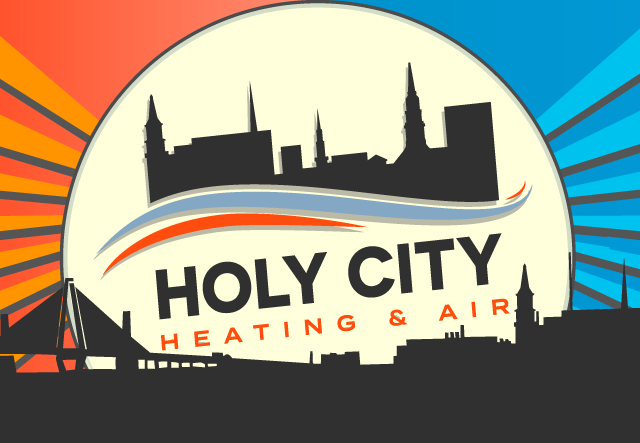A well-functioning heating system is essential for maintaining comfort in your home, especially during colder months. However, recognizing when your heating system needs repair can prevent more significant problems and costlier fixes down the line. By being aware of the indicators that your system may require service, you can take proactive steps to keep it running efficiently.
Unusual Noises Coming from Your System
Common Sounds to Watch For
Several common sounds can indicate that your heating system needs repair. Listen for banging, clanking, or rattling noises, which could signal loose or broken components within the system. Squealing or screeching sounds often suggest issues with belts or bearings, indicating that parts may be worn out or misaligned. Additionally, humming or buzzing noises can point to electrical problems that require immediate attention.
Another noise to be aware of is a whooshing or whistling sound, which could mean there is a problem with the airflow in your system. This issue can be due to blocked vents or dirty filters. Paying attention to these sounds can help you identify problems early and address them before they worsen.
What These Sounds May Indicate
Different sounds from your heating system can indicate various underlying issues. Banging or clanking noises often result from loose parts that need tightening or replacement. These sounds may also indicate problems with the motor or blower assembly. Squealing and screeching usually point to issues with the belts or bearings, potentially needing lubrication or replacement.
Humming or buzzing noises can signal electrical problems, such as faulty wiring, which may pose a safety hazard if not addressed promptly. Whooshing or whistling sounds often indicate restricted airflow, which can strain the system and reduce its efficiency. These noises should be investigated by our professionals to determine the cause and necessary heating repair.
Inconsistent Heating Throughout the Home
Causes of Uneven Heating
Inconsistent heating in your home can be frustrating and uncomfortable. Several factors can cause this issue. Blocked or closed vents may restrict airflow to specific areas, causing temperature variations. Leaky ductwork can also lead to uneven heating by allowing warm air to escape before it reaches its intended destination.
Another common cause is improper insulation. Poorly insulated rooms lose heat faster, resulting in a noticeable difference in temperature. Malfunctioning thermostats or outdated heating systems that struggle to distribute warm air evenly throughout the house can also contribute to uneven heating.
How to Address Temperature Variations
Addressing temperature variations in your home involves several steps. First, check all vents and registers to ensure they are open and unobstructed. These simple checks can often resolve the issue of blocked airflow. Next, inspect your home’s ductwork for any leaks or damage. Sealing these leaks can help ensure warm air reaches all rooms effectively.
Improving the insulation in problem areas can prevent heat loss and help maintain consistent temperatures. Consider upgrading to a programmable thermostat, which can help manage the temperature more efficiently throughout your home. Finally, if the heating system itself is old or malfunctioning, scheduling a heating repair can help diagnose and fix the issue, restoring even heating to your home.
Unexpected Increases in Energy Bills
Signs of Reduced Efficiency
Unexpected increases in your energy bills can be a clear sign that your heating system is losing efficiency. If your bill spikes but your usage has remained consistent, it might indicate that your system is overworking to maintain the desired temperature. Reduced efficiency often translates to your heating system running for longer periods, struggling to heat your home effectively.
Your thermostat settings haven’t changed, but you notice your heater is constantly running. This is another sign pointing to a loss in efficiency. The system is using more energy to achieve the same results, which not only affects your bills but also puts additional stress on the unit.
Factors Contributing to Higher Energy Consumption
Several factors can drive up your energy consumption. One common cause is a dirty or clogged air filter, which makes your system work harder to push air through. Leaky ducts can allow heat to escape, forcing the system to compensate for the lost warmth. Aging equipment or components that are beginning to wear out can also reduce overall efficiency.
Additionally, lack of regular maintenance can lead to minor issues that evolve into bigger problems. Ensuring that all parts of the system are clean, lubricated, and functioning correctly can prevent these efficiency losses. By understanding and addressing these issues, homeowners can mitigate unexpected increases in energy bills and prolong the life of their heating system.
Frequent Cycling On and Off
Causes of Short Cycling
Short cycling occurs when your heating system turns on and off more frequently than it should. One primary cause of short cycling is an incorrectly sized heating unit. If your heating system is too large for your home, it will heat the space quickly and then shut off, only to restart soon after as temperatures drop. A malfunctioning thermostat can also send incorrect signals, causing the system to cycle erratically.
Other potential causes include restricted airflow due to dirty filters or blocked vents, which can cause the heat exchanger to overheat and shut down. Issues within the system’s safety mechanisms, such as a faulty limit switch, can also trigger short cycling.
Possible Solutions to Prevent Frequent Cycling
To prevent frequent cycling, start by checking your thermostat settings and calibration. Ensure it is properly set and functioning correctly. If the problem persists, consider whether your unit is the right size for your home. An HVAC professional can conduct a load calculation to determine if your system is appropriately sized.
Regular maintenance, such as replacing filters and inspecting ductwork, ensures proper airflow and prevents overheating. Addressing these issues can help your heating system function more efficiently and reduce the strain caused by frequent cycling. If short cycling continues, it may be time to consult professionals for a thorough diagnosis and appropriate heating repair.
Conclusion
Recognizing the key indicators that your heating system needs repair can save you from discomfort and costly damages. From unusual noises and inconsistent heating to unexpected increases in energy bills and frequent cycling, being vigilant about these signs helps ensure your system operates efficiently. Proper maintenance and timely repairs can extend the life of your heating system and keep your home comfortable.
For expert heating repair in Johns Island, look no further than our team at Holy City Heating & Air, LLC. Our professionals are dedicated to keeping your heating system in top shape. Contact us today for comprehensive service and peace of mind.






